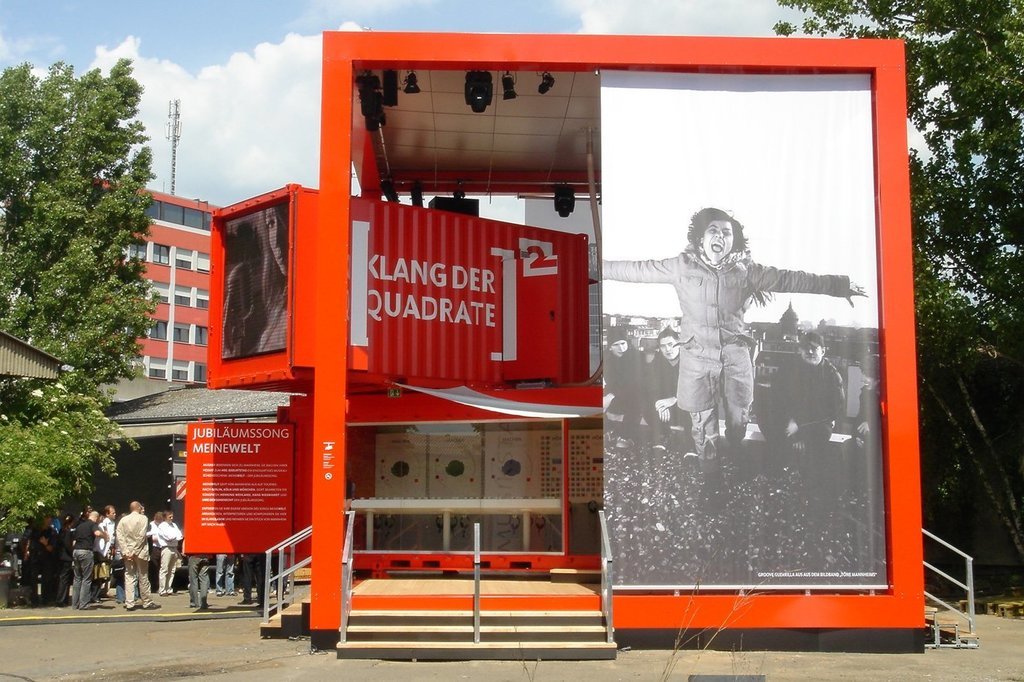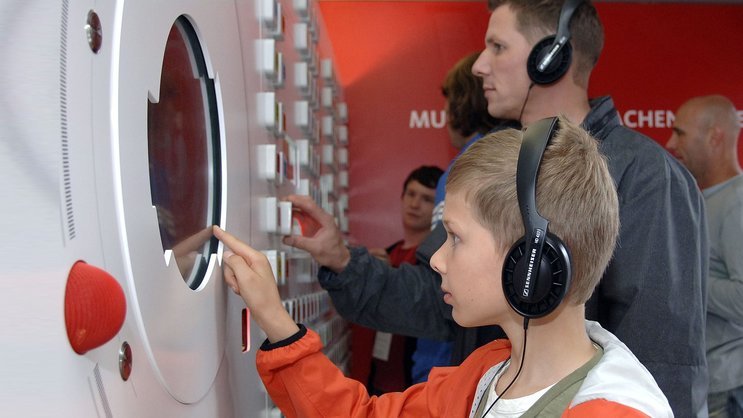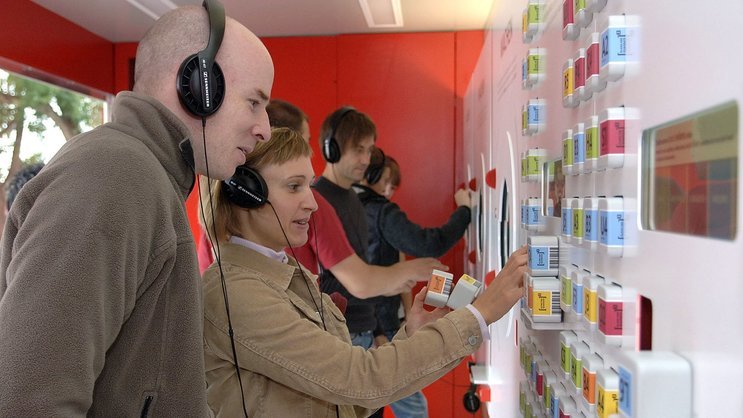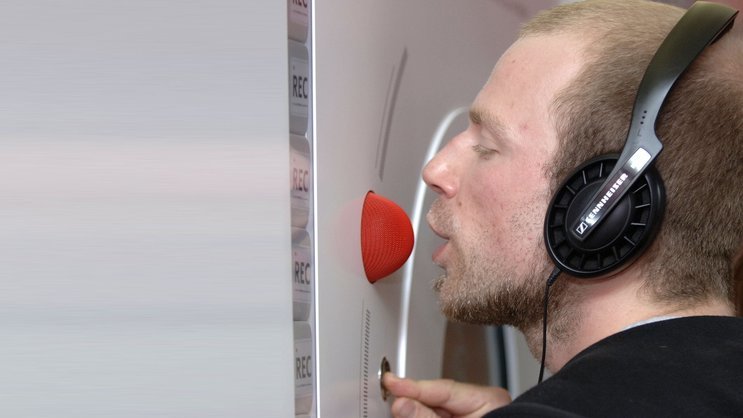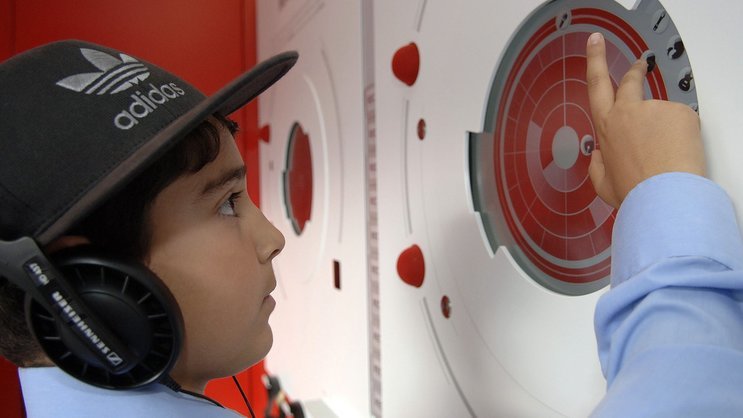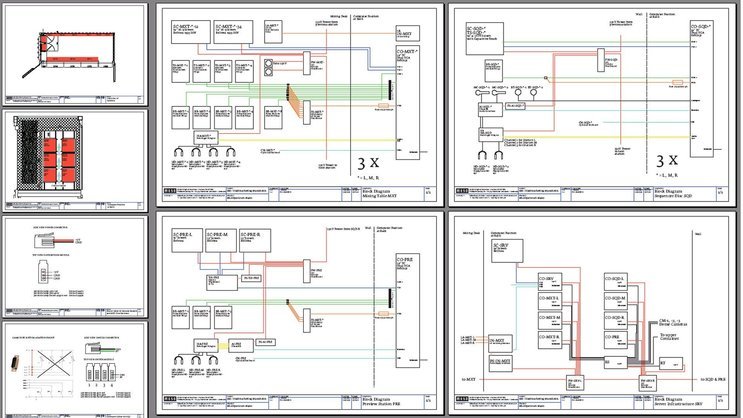The “Klang der Quadrate” cube structure seen from the outside
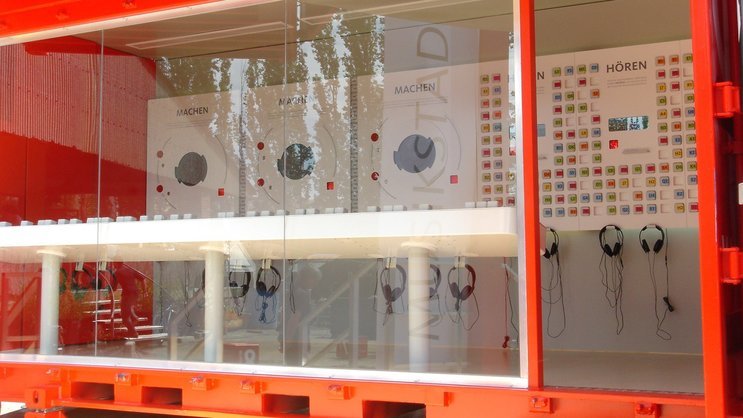
Within a base area of about 64 m² and with surroundings of about 400 m², visitors were invited to create their own version of Mannheim’s anniversary song “Meine Welt” which could also be downloaded from the internet. The concept of the “Sound Lab” was based on two different kinds of handy cubes, “sample cubes” and “record cubes”, and three working zones.
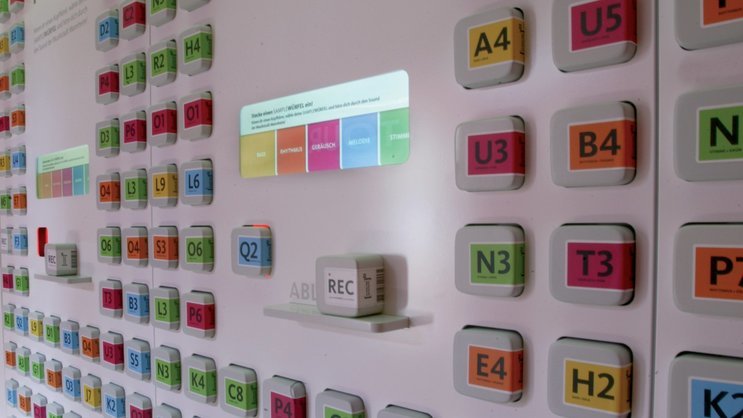
The library consisted of about 80 different sound samples from Mannheim artists, field recordings and various remixes of the “Mannheim Song”. At the library station visitors could do a pre-selection for their individual sound mixes.
At the mixing zone, the sample cubes from the library could be combined with the individual sound creations recorded on the record cubes with the help of four different audio tracks.
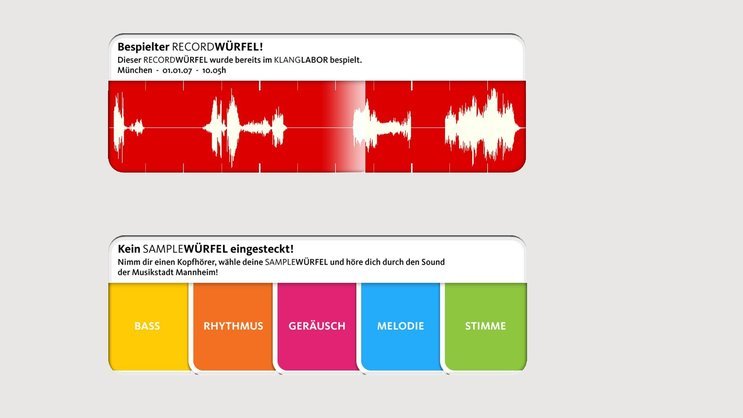
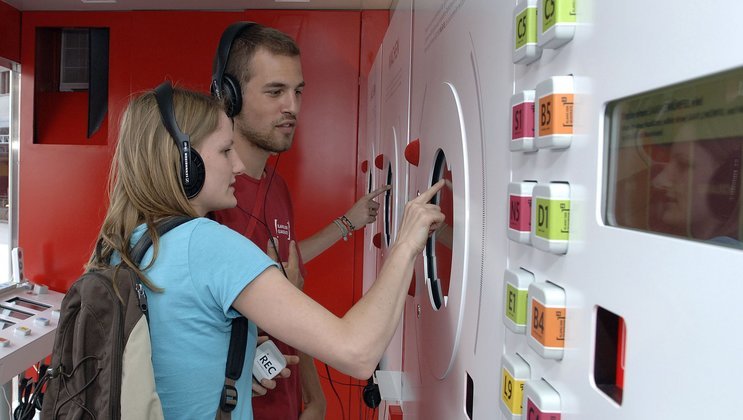
Every audio track offered different possibilities to combine and reinterpret the sounds provided by the cubes. After finishing the remix, the unique version of the Mannheim-Song was again recorded and automatically uploaded onto a web-server. Users could also play their own individual sounds with the help of two microphones and record them onto the record cubes.
The rotating sequencer was used to create individual sound samples (e.g. drums or guitar) by placing a cube on a circle. The circle was constantly scanned by radar. When the radar crossed the cube, the sound recorded on it was played. Because the inner circle of the sequencer was scanned more often than the outer one it was possible to create complex sound-compositions.
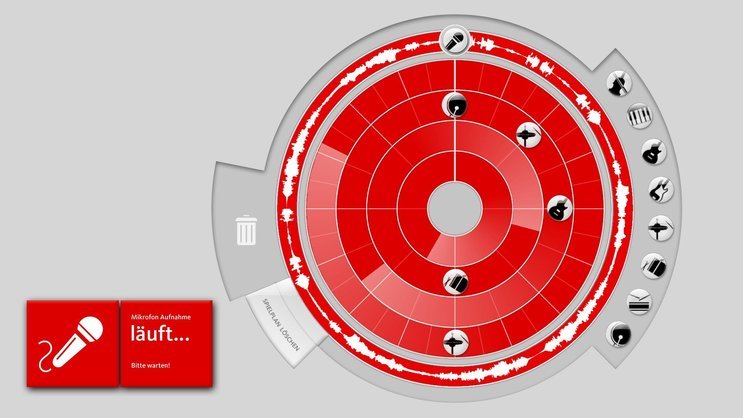
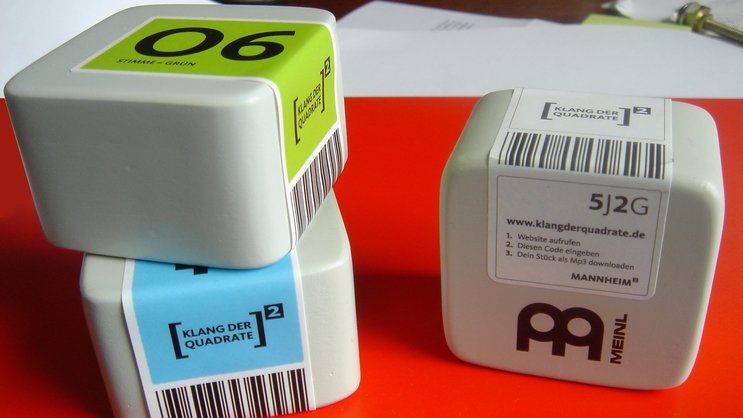
To identify the samples and record cubes each of the 10,000 cubes was marked with a unique bar-code readable by ordinary bar-code scanners. A central processor, linked with all stations, was installed to administrate the information contained in the cubes. The three stations of the “Sound Lab” were operated by eight computers and equipped with capacitive and optic touchscreens working as user interfaces.
Detail view of Mixing Table with recording functionality
© MESO Digital Interiors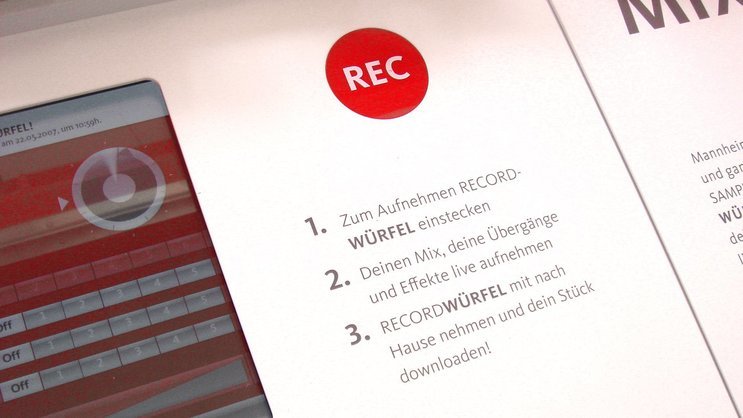
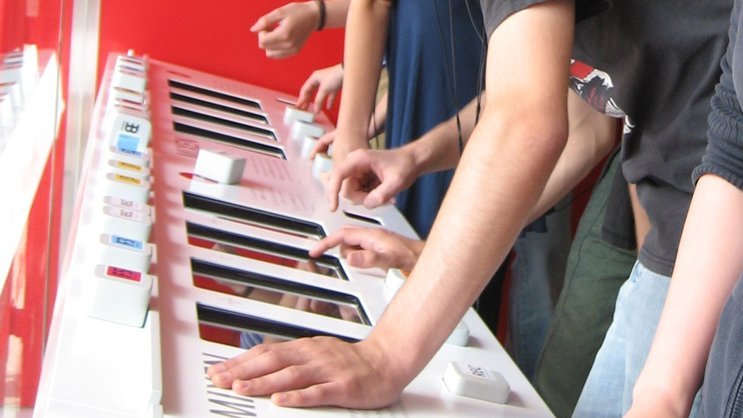
Because every workstation was based on the graphic programming language vvvv, it was possible to create a custom software for “Klang der Quadrate”. This software navigated all graphic user interfaces and background processes at the same time; all individual song “records” were automatically converted into MP3s and uploaded onto an external web server. The programming language MAX/MSP was used for the audio signal processing and communicated with vvvv via OSC (Open Sound Control).
During the summer of 2008, the lab was installed at the Landesmuseum für Technik und Arbeit Mannheim (now TECHNOSEUM) as part of the exhibition “Macht Musik!”. Now it has found a permanent home in the rock’n’popmuseum in Gronau.
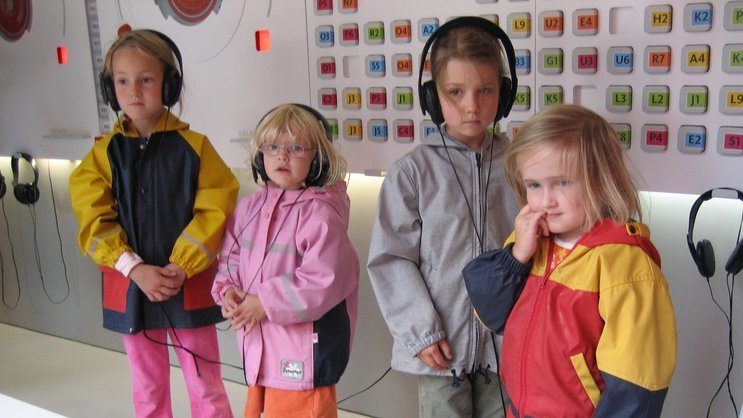
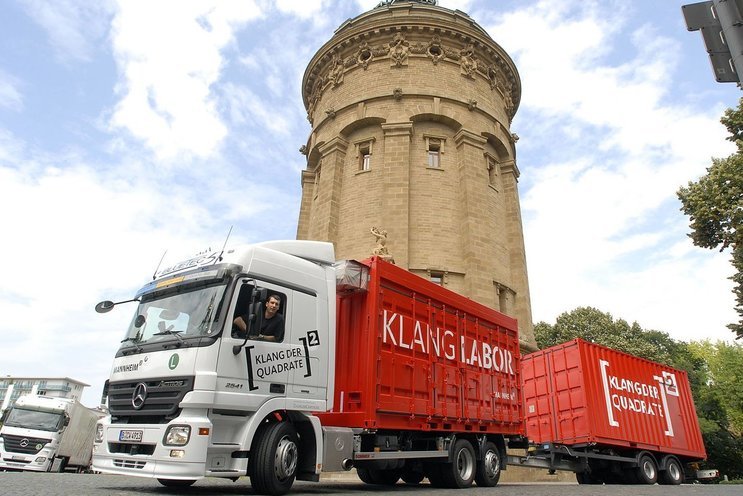
Behind the scenes
Making-of
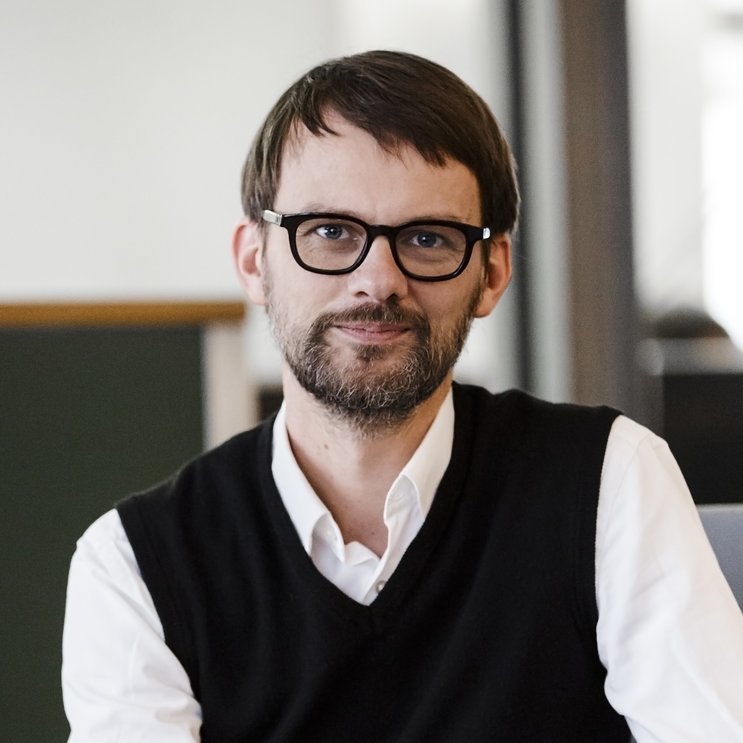
Curious about our approach? Feel free to get in touch!
Sebastian Oschatz Partner +49 69 24 000 321 sebastian.oschatz@meso.design sebastian.oschatz@meso.design +49 69 24 000 321
MESO Digital Interiors GmbH
Gutleutstr. 96 . 60329 Frankfurt . Germany
Team
David Dessens, Ingolf Heinsch, Sebastian Weiss, Iven Schmidt, Jörg Obenauer
